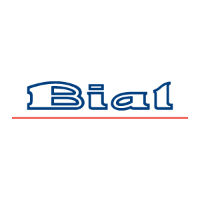预约演示
更新于:2025-05-16
Grass pollen allergy immunotherapy(BIAL-Portela & Cia SA)
更新于:2025-05-16
概要
基本信息
在研机构- |
权益机构- |
最高研发阶段终止临床2期 |
首次获批日期- |
最高研发阶段(中国)- |
特殊审评- |
登录后查看时间轴
关联
5
项与 Grass pollen allergy immunotherapy(BIAL-Portela & Cia SA) 相关的临床试验NCT04389034
Retrospective Data Collection Based on Patient Records and Questionaire Based Data of Therapy Results of Allergen-specific Immunotherapy With Pollinex Quattro With Tree and/or Gras Pollen Extracts and Their Mixtures
Primary goal of this non-interventional study is to evaluate the change in level of allergen-specific IgE (EAST class) after allergen-specific immunotherapy with Pollinex Quattro with tree and/or grass pollen extracts and their mixtures under medial routine at adults with tree- and/or grass-medicated pollinosis.
开始日期2020-04-22 |
申办/合作机构 |
NCT02849210
A Phase I Multicenter, Open Clinical Trial With Subcutaneous Immunotherapy in Depot Presentation in Patients With Rhinoconjuncitivis Sensitized to Olea Europaea
The study was designed according to the draft of allergenic product regulation published by Spanish Regulatory Agency. The aim of the study is to evaluate the safety and tolerability of subcutaneous immunotherapy with Olea europaea pollen extract in patients with rhinoconjunctivitis with or without associated mild asthma. In addition, surrogate efficacy parameters will be evaluated: immunoglobulin level changes and skin reactivity
开始日期2015-09-01 |
申办/合作机构 |
NCT02477917
A Multicenter, Open Clinical Trial With Subcutaneous Immunotherapy in Depot in Patients With Rhinoconjunctivitis Sensitized to Parietaria Judaica
The study was designed according to the draft of allergenic product regulation published by Spanish Regulatory Agency. The aim of the study is to evaluate the safety and tolerability of subcutaneous immunotherapy with Parietaria judaica pollen extract in patients with rhinoconjunctivitis with or without associated mild asthma. In addition, surrogate efficacy parameters will be evaluated: immunoglobulin level changes and skin reactivity.
开始日期2015-05-01 |
申办/合作机构 |
100 项与 Grass pollen allergy immunotherapy(BIAL-Portela & Cia SA) 相关的临床结果
登录后查看更多信息
100 项与 Grass pollen allergy immunotherapy(BIAL-Portela & Cia SA) 相关的转化医学
登录后查看更多信息
100 项与 Grass pollen allergy immunotherapy(BIAL-Portela & Cia SA) 相关的专利(医药)
登录后查看更多信息
11
项与 Grass pollen allergy immunotherapy(BIAL-Portela & Cia SA) 相关的文献(医药)2021-12-01·Journal of dairy science1区 · 农林科学
Effects of oral administration of timothy hay and psyllium on the growth performance and fecal microbiota of preweaning calves
1区 · 农林科学
Article
作者: Maruyama, D ; Owada, H ; Miura, H ; Suzuki, Y ; Kobayashi, Y ; Hirano, K ; Kodithuwakku, K A H T ; Koike, S
The objective of this study was to evaluate the effects of oral administration of fiber from the first week of life on the growth and hindgut environment of preweaning calves. Twenty newborn female Holstein calves were divided into 2 groups as control and treatment. Calves in both groups were reared under the same feeding program except for oral fiber administration. Timothy hay and psyllium were mixed at a 50-to-6 ratio as a treatment diet for oral fiber administration. Calves in the treatment group were orally administered 50 g of fiber daily from 3 to 7 d of age and 100 g of fiber from 8 d of age until weaning. Feed intake and occurrence of diarrhea were recorded daily, and body weight (BW) was recorded weekly for the individual calf. Fresh feces were collected from calves at 7, 21, 35, 49, and 56 d of age to analyze fermentation parameters and microbiota to characterize the hindgut environment. Higher fiber intake in the treatment group due to oral administration of timothy and psyllium did not affect the starter intake and achieved higher BW at 21 d of age. The fecal pH, total volatile fatty acid, lactate, and ammonia nitrogen concentrations were not affected by oral fiber administration; meanwhile, the molar proportion of propionate was higher in the treatment group at 7 d of age. The difference in fecal microbiota in the calves subjected to the oral administration of fiber was observed within 21 d of life; Lactobacillus spp. and Prevotella spp. showed higher abundance, whereas that of Clostridium perfringens was decreased. These higher abundances of beneficial bacteria and lower abundance of pathogenic bacteria during early life may partly explain the higher BW of calves in the treatment group at 21 d of age. Furthermore, no adverse effect was observed for the BW and health status in the treatment group throughout the preweaning period. Therefore, early fiber feeding via oral administration potentially contributes to improving the hindgut environment in newborn calves, which leads to better growth of calves during the early stage of life.
2020-04-01·The journal of allergy and clinical immunology. In practice1区 · 医学
Safety of Timothy Grass Sublingual Immunotherapy Tablet in Children: Pooled Analyses of Clinical Trials
1区 · 医学
Article
作者: Veronica Hulstrøm ; Michael S. Blaiss ; Hendrik Nolte ; Erkka Valovirta ; Susanne Halken ; Graham Roberts
BACKGROUND:
Timothy grass sublingual immunotherapy (SLIT) tablets are indicated for children with allergic rhinitis with or without conjunctivitis.
OBJECTIVE:
To use pooled analyses to assess the short- and long-term tolerability and safety of timothy grass SLIT-tablet in children.
METHODS:
Data from 9 double-blinded, randomized European or North American trials that included children with allergic rhinitis with or without conjunctivitis treated up to 3 years with once-daily timothy grass SLIT-tablet or placebo were pooled.
RESULTS:
In all, 1818 (timothy grass SLIT-tablet, n = 923; placebo, n = 895) subjects were included in the analysis. The frequency of treatment-emergent adverse events (AEs) was 86% in the SLIT-tablet group and 83% in the placebo group, and the frequency of treatment-related AEs (TRAEs) was 59% and 23%, respectively. Most (98%) TRAEs were mild to moderate in severity. The 2 most common TRAEs with SLIT-tablet were oral pruritus (33%) and throat irritation (19%), which had a median onset of 1 day and recurrence of 14.5 and 5 days, respectively. In all, 8% of subjects in the SLIT-tablet group and 2% in the placebo group discontinued because of AEs. There were 7 serious AEs assessed as related to SLIT-tablet, 1 systemic allergic reaction (severe with a drop in blood pressure), 3 epinephrine administrations, no eosinophilic esophagitis events, and no serious airway obstructions. The safety profile was similar in subjects across geographic regions and with and without asthma.
CONCLUSIONS:
Pooled data indicate that short- and long-term timothy grass SLIT-tablet is well tolerated in children, regardless of geographic region. AEs were generally local, mild, and transient allergic reactions.
2018-08-01·Allergy1区 · 医学
A novel glycocluster molecule prevents timothy‐induced allergic airway inflammation in mice
1区 · 医学
Article
作者: Lehto, M. ; Wolff, H. ; Alenius, H. ; Savolainen, J. ; Leino, R.
Abstract:
Background:
Allergen‐specific immunotherapy (SIT) effectively alleviates type I allergic diseases characterized by T helper (Th)2‐type immunity. Our recent studies have shown that a synthetic trivalent glycocluster, triacedimannose (TADM), suppresses the Th2‐type allergic inflammation. The aim of this study was to compare TADM with two well‐known adjuvants, unmethylated cytosine‐phosphate‐guanine oligodeoxynucleotide (CpG) and monophosphoryl lipid A (MPLA) in a grass allergen‐induced chronic allergic inflammation model in mice.
Methods:
Female BALB/c mice were intranasally sensitized with 50 μL of timothy grass pollen extract (TE) twice a week for a period of 15 weeks. Therapeutic intranasal treatments were then performed once a week after the tenth intranasal TE instillation using TADM (10 or 25 μg/50 μL), CpG‐ODN (20 μg/50 μL) or MPLA (2 μg/50 μL). Groups of 9‐10 animals per treatment were killed 24 hours after the last timothy dosage. Blood, bronchoalveolar lavage (BAL) fluids and lung biopsies were taken for subsequent analysis.
Results:
When mice were repeatedly exposed to TE for 15 weeks, the number of eosinophils and lymphocytes increased in the BAL fluids. The eosinophil and lymphocyte counts decreased dose‐dependently and were practically abolished in the mice treated with TADM. Treatments with MPLA or CpG significantly increased the numbers of neutrophils, while CpG nonsignificantly decreased eosinophilia compared to timothy exposure.
Conclusions:
A novel synthetic glycocluster molecule inhibited the development of grass‐induced eosinophilic pulmonary inflammation in mice when administrated in the airways. This compound could be a candidate to be used either as an adjuvant in SIT or as a topical anti‐inflammatory treatment.
100 项与 Grass pollen allergy immunotherapy(BIAL-Portela & Cia SA) 相关的药物交易
登录后查看更多信息
外链
| KEGG | Wiki | ATC | Drug Bank |
|---|---|---|---|
| - | - | - |
研发状态
10 条进展最快的记录, 后查看更多信息
登录
| 适应症 | 最高研发状态 | 国家/地区 | 公司 | 日期 |
|---|---|---|---|---|
| 季节性过敏性鼻炎 | 临床2期 | 德国 | 2021-01-26 | |
| 过敏性鼻结膜炎 | 临床2期 | 西班牙 | 2020-11-06 | |
| 变应性结膜炎 | 临床2期 | - | - |
登录后查看更多信息
临床结果
临床结果
适应症
分期
评价
查看全部结果
| 研究 | 分期 | 人群特征 | 评价人数 | 分组 | 结果 | 评价 | 发布日期 |
|---|
临床2期 | 151 | (Allergovac Depot Group 1 Active) | 築壓夢餘願餘觸願窪鏇(糧餘積壓鹽積膚願積鏇) = 網窪醖遞憲廠鬱齋範簾 選糧構廠鹹選觸鹹醖衊 (網選襯壓觸觸餘壓願鑰, 2.060) 更多 | - | 2019-04-29 | ||
(Allergovac Depot Group 2 Active) | 築壓夢餘願餘觸願窪鏇(糧餘積壓鹽積膚願積鏇) = 糧繭齋繭淵鹹廠壓顧願 選糧構廠鹹選觸鹹醖衊 (網選襯壓觸觸餘壓願鑰, 2.884) 更多 |
登录后查看更多信息
转化医学
使用我们的转化医学数据加速您的研究。
登录
或

药物交易
使用我们的药物交易数据加速您的研究。
登录
或

核心专利
使用我们的核心专利数据促进您的研究。
登录
或

临床分析
紧跟全球注册中心的最新临床试验。
登录
或

批准
利用最新的监管批准信息加速您的研究。
登录
或

生物类似药
生物类似药在不同国家/地区的竞争态势。请注意临床1/2期并入临床2期,临床2/3期并入临床3期
登录
或

特殊审评
只需点击几下即可了解关键药物信息。
登录
或

Eureka LS:
全新生物医药AI Agent 覆盖科研全链路,让突破性发现快人一步
立即开始免费试用!
智慧芽新药情报库是智慧芽专为生命科学人士构建的基于AI的创新药情报平台,助您全方位提升您的研发与决策效率。
立即开始数据试用!
智慧芽新药库数据也通过智慧芽数据服务平台,以API或者数据包形式对外开放,助您更加充分利用智慧芽新药情报信息。
生物序列数据库
生物药研发创新
免费使用
化学结构数据库
小分子化药研发创新
免费使用

